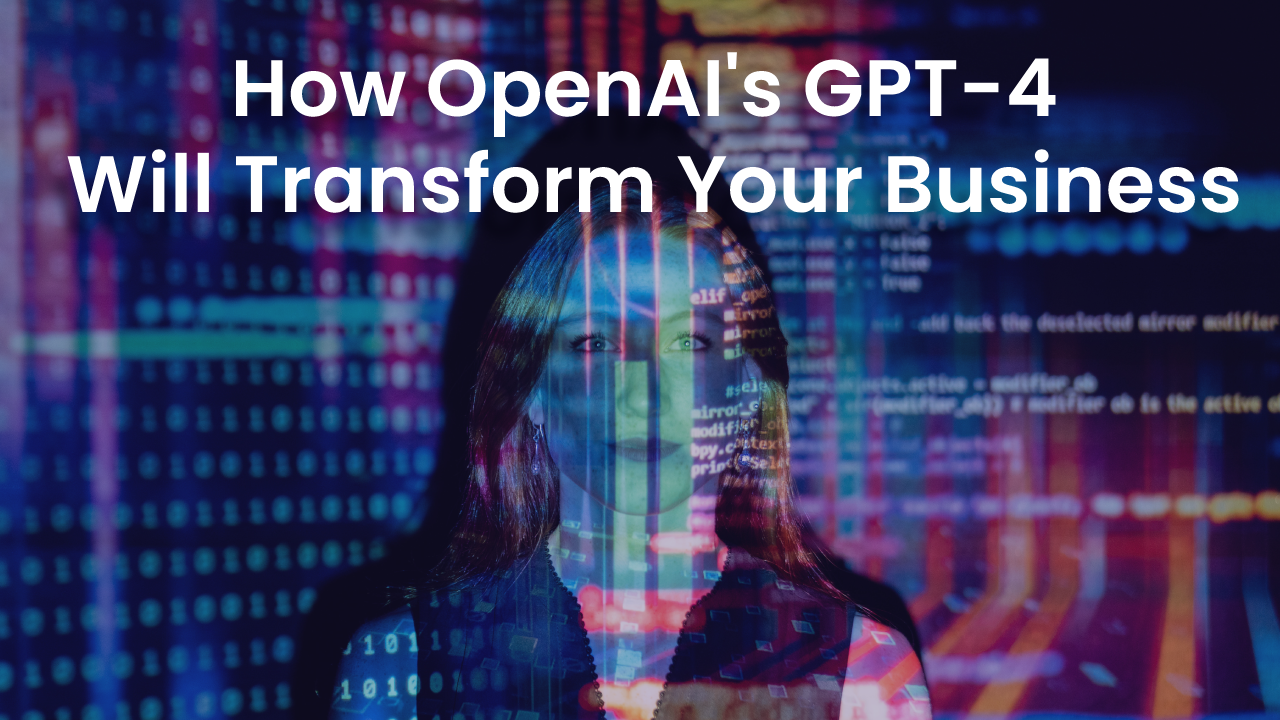Introduction:
OpenAI’s GPT-3 has revolutionized the way businesses approach natural language processing and AI-powered applications. With its advanced natural language understanding capabilities, GPT-3 has been used to develop chatbots, virtual assistants, content generators, and much more. However, as the AI industry continues to evolve, the next iteration of OpenAI’s GPT technology is eagerly anticipated, with GPT-4 expected to be even more transformative for businesses.
In this article, we’ll explore how GPT-4 will transform your business by improving natural language understanding and generation, increasing efficiency and productivity, and enabling new possibilities for automation.
Improved Natural Language Understanding and Generation:
One of the key benefits of GPT-4 will be its improved natural language understanding and generation capabilities. While GPT-3 was already highly advanced in this regard, GPT-4 is expected to take things to a whole new level. With a larger and more complex neural network, GPT-4 will be able to understand and generate more complex and nuanced language.
This increased capability will have many applications for businesses. For example, chatbots and virtual assistants will be able to understand and respond to more complex customer queries and requests, providing more personalized and helpful responses. Similarly, content generators will be able to produce higher quality and more engaging content, with a better understanding of context, tone, and style.
GPT-4 will also be able to understand and generate more complex forms of language, such as legal and technical language. This will enable new applications for AI in industries such as law, finance, and healthcare, where the ability to understand and generate complex language is essential.
Increased Efficiency and Productivity:
Another way in which GPT-4 will transform businesses is by increasing efficiency and productivity. With its advanced natural language processing capabilities, GPT-4 will be able to automate many tasks that currently require human intervention. This will free up time and resources for businesses to focus on higher-value activities.
For example, GPT-4 could be used to automate tasks such as data entry, customer service, and content creation. This would enable businesses to operate more efficiently and reduce the need for manual labor. In addition, GPT-4 could be used to automate decision-making processes, such as risk assessment and fraud detection, further increasing efficiency and productivity.
With GPT-4’s increased capability for understanding and generating complex language, businesses will also be able to automate more complex tasks. For example, GPT-4 could be used to automate legal research or financial analysis, freeing up time for lawyers and analysts to focus on higher-level tasks.
New Possibilities for Automation:
Finally, GPT-4 will enable new possibilities for automation that were previously impossible. With its increased natural language processing capabilities, GPT-4 will be able to understand and generate language in a more nuanced and context-specific way. This will enable new applications for AI in areas such as customer service and personalization.
For example, GPT-4 could be used to create virtual assistants that are able to understand and respond to customer queries in a highly personalized and context-specific way. This would enable businesses to provide a higher level of customer service and support, while also reducing the need for human intervention.
In addition, GPT-4 could be used to create personalized content for customers, such as product recommendations and marketing messages. By understanding the customer’s needs and preferences, GPT-4 could generate content that is highly relevant and engaging, leading to increased customer satisfaction and loyalty.
Conclusion:
OpenAI’s GPT-4 is set to be a transformative technology for businesses, with its advanced natural language processing capabilities enabling new applications for AI and automation. With improved natural language understanding and generation, businesses will be able to create more personalized and engaging customer experiences, while also increasing efficiency and productivity by automating tasks that previously required human intervention. GPT-4 will also enable new possibilities for automation, with its ability to understand and generate language in a more nuanced and context-specific way.
As with any new technology, there are potential challenges and concerns that businesses will need to address when implementing GPT-4. For example, there may be ethical concerns around the use of AI and automation in certain industries, and businesses will need to ensure that they are using the technology in a responsible and ethical way.
There may also be concerns around the potential impact of GPT-4 on jobs and the workforce. While the technology has the potential to automate many tasks and increase efficiency, there is a risk that it could also lead to job displacement in certain industries. It will be important for businesses to carefully consider the impact of GPT-4 on their workforce and to take steps to mitigate any potential negative effects.
Despite these challenges, however, the potential benefits of GPT-4 for businesses are significant. With its advanced natural language processing capabilities, GPT-4 will enable businesses to create more personalized and engaging customer experiences, while also increasing efficiency and productivity through automation. As the AI industry continues to evolve, businesses that are able to effectively harness the power of GPT-4 will be well-positioned to succeed in the years ahead.

